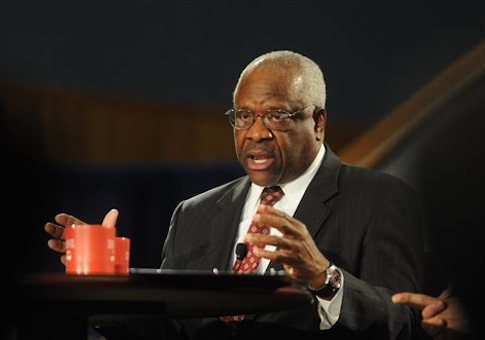A petition to include Supreme Court Justice Clarence Thomas in the Smithsonian National Museum of African American History and Culture has attracted thousands of signatures, the Daily Caller News Foundation reports.
The museum opened on Washington's National Mall in September with a massive dedication ceremony and speeches by such figures as Presidents Barack Obama and George W. Bush. While the museum prominently features Anita Hill, who famously accused Thomas of sexual harassment amid his confirmation hearings in 1991, there is only passing reference to the life and career of Thomas himself.
The Smithsonian said "we cannot tell every story in our inaugural exhibitions" in response to the criticisms.
The petition on behalf of Thomas has already attracted 7,000 signatures, the Daily Caller News Foundation notes.
There is no showcase of Thomas' own life and career, which ran its own harsh gauntlet of racial discrimination prior to a series of prominent appointments in the Ronald Reagan and George H. W. Bush administrations which culminated in his elevation to the U.S. Supreme Court.
"He has established himself as one of the brightest legal minds of his generation, yet the newly opened National Museum of African American History and Culture fails to include any mention of his numerous accolades," the petition reads. "Curators at the museum singled out Thomas due to his unique views on race and his conservative thought that the federal government is the greatest threat to our individual liberties." The appeal is addressed to Dr. Lonnie Bunch III, the founding director of the museum.
Thomas is only the second black Supreme Court justice in American history, but he has been the subject of sharp criticism from the left during his 25 years on the nation's highest bench for his conservative opinions. Democratic legislators have demeaned him as not truly black, with one calling him an "Uncle Tom" and another saying his was not a true "African-American voice" on the court.
